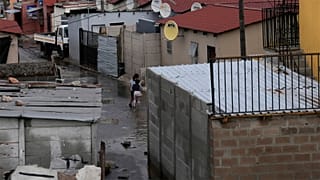South Africa
As the drought persists in parts of Southern Africa, some women in South Africa’s Cape Town, have taken to micro farming as a way of supporting their families.
One such farmer and the operation Manager of “Harvest of Hope” is Christine Kaba whose organisation runs small gardens in the township.
After losing her job as a domestic worker, Mama Kaba as she is mostly called, began growing vegetables at the back of her house to supplement her dwindling income and to support her family.
She later joined Abalimi which works primarily with unemployed women.
“I like to see the women stand up and not to cry and say “this Friday my husband did not give me any money; at the end of the month my husband did not do this”. We do it ourselves. We manage our gardens, we manage our money. People did not see a bank card before, everybody has a bank card now; they know that on the 15th we have a salary. We work from 7 till 6 o’clock as all our gardens are near our houses; we see our children all the time,” she explained.
The Abalimi project was started in 1982 by a group of volunteers during the apartheid era to help poor people in the townships of the Western Cape province grow and farm their own crops as a means of survival.
Micro-farming in South Africa = small steps to big change. Check out my friends' documentary “Abalimi” on
— OperationGastronomia (opgastronomia) February 29, 2012kickstarterhttp://t.co/kHoVeDLL
The project has grown to about 3,000 micro farmers with majority of the farmers growing vegetables and other crops in their gardens at home.
As a result of the high food prices in the country, many people have taken to micro farming in order to sustain themselves.
These farmers grow organic vegetables without using chemicals. They said they have also found a way to cope with hard times.
Mama Kaba organises and runs the vegetable warehouses. She said they need support to employ more people.
“We need support from government to create more jobs. You see the youth there, they are, working because there is a salary at the end. They donate those vegetables to other homes; they know that a granny is hungry, they donate and they get a salary,” Kaba added.
In addition to working with Abalimi, Mama Kaba has started many other projects in the township such as a community swimming pool and a local park.
She has become an inspiration to many women and men in the country.




![Africa's economy to expand in 2026 despite risks [Business Africa]](https://images.euronews.com/articles/stories/09/59/18/91/320x180_cmsv2_a090e29c-4edc-5b24-a887-6dea31e3ec4e-9591891.jpg)








01:24
Death toll in South Africa shooting rises to 12 after one victim dies in hospital
Go to video
3-year-old boy among 11 people killed in South Africa shooting
01:08
Zuma’s 18-year corruption battle nears crucial court ruling
01:00
2027 Rugby World Cup: Springboks and All Blacks set for quarterfinal showdown
01:48
Zuma’s daughter resigns amid claims South Africans were lured into Ukraine War
01:18
World marks International Day for the Elimination of Violence against Women and Girls